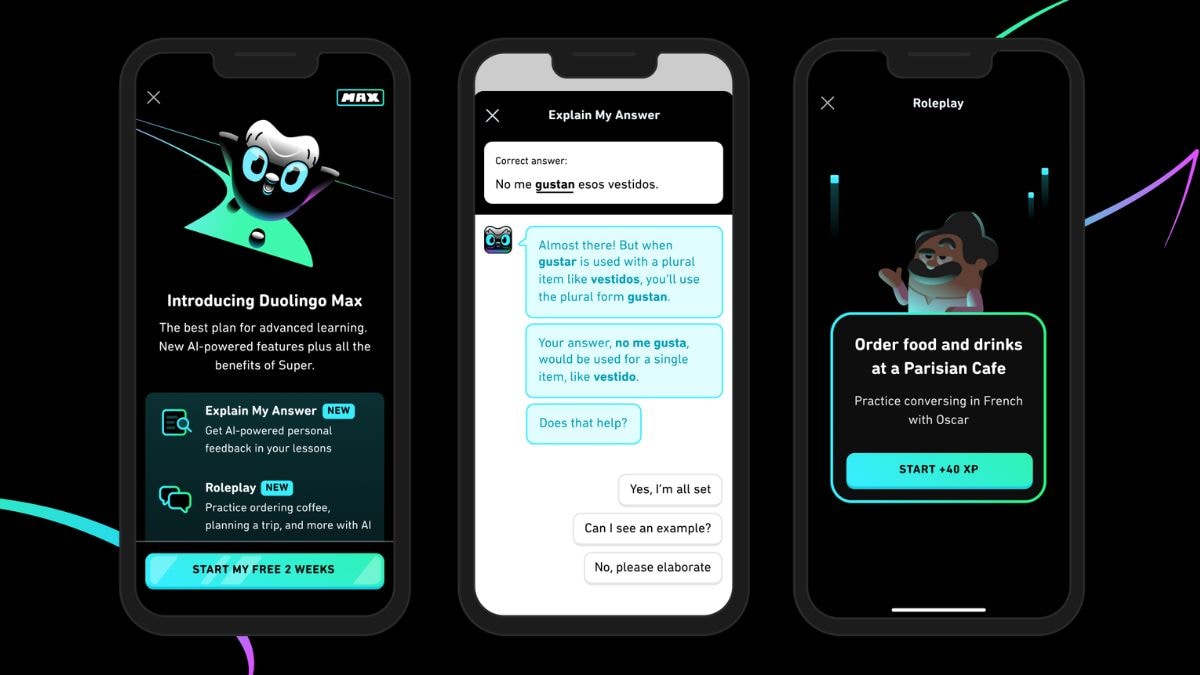Examples of Generative AI in Various Industries
Machines now write novels, design buildings, and compose symphonies – achievements once confined to science fiction. Generative AI has transformed these possibilities into reality, revolutionizing industries from healthcare to entertainment.
Generative AI systems create new content – text, images, music, and synthetic data – unlike traditional AI that only analyzes existing information. These systems expand the boundaries of machine capabilities through sophisticated content generation.
Healthcare applications showcase generative AI’s practical impact. At Insilico Medicine, researchers used AI to design a drug candidate in 21 days instead of years. Similarly, AI tutors adapt to individual student needs, delivering personalized education at scale.
Marketing teams harness generative AI to craft targeted campaigns and product recommendations that resonate with specific audiences. The entertainment sector benefits as AI generates music, art, and scripts, creating new forms of creative expression.
The following sections examine how organizations implement generative AI across industries, demonstrating its transformative impact on innovation, efficiency, and human potential.
Healthcare Applications of Generative AI


AI technology has fundamentally changed healthcare delivery and research. Medical professionals now leverage AI systems for faster drug discovery, personalized treatments, and enhanced diagnostic capabilities.
AI algorithms analyze chemical databases to identify promising drug candidates within hours instead of years. A landmark Nature study demonstrated this breakthrough when AI discovered a novel antibiotic compound effective against drug-resistant bacteria – accomplishing in hours what traditionally took years of research.
Genetic profiles, medical histories, and lifestyle data feed into AI systems to create personalized treatment plans. Cancer care particularly benefits as AI analysis determines optimal chemotherapy regimens for each patient’s unique case.
Medical imaging has reached new levels of precision with AI detection of subtle abnormalities in X-rays, MRIs, and CT scans. Studies show AI models match expert radiologists in identifying early breast cancer signs in mammograms.
AI chatbots and virtual therapists provide constant mental health support, offering cognitive behavioral therapy and mood monitoring. These tools alert human professionals when patients need direct intervention.
The creation of synthetic medical data represents another breakthrough. AI generates privacy-compliant patient data that mimics real scenarios, enabling medical training and research without compromising confidentiality.
Healthcare continues to evolve through AI innovation, leading to more accurate diagnoses and groundbreaking research. This transformation focuses on improving patient outcomes while making medical practices more efficient.
Generative AI Enhancing Education


Explore feedback and roleplaying in French. – Via gadgets360cdn.com
Generative artificial intelligence transforms education by personalizing learning experiences and empowering educators with intelligent tools. Students receive customized instruction while teachers gain powerful resources for creating engaging content and providing targeted support.
AI analyzes student data to adapt educational content and methods to individual learning styles, strengths, and challenges. This personalization improves comprehension and engagement, leading to better academic outcomes.
Duolingo Max demonstrates AI’s educational potential through its GPT-4 powered features. The platform’s ‘Explain My Answer’ and ‘Roleplay’ capabilities deliver instant feedback and create interactive language practice scenarios that adapt to each student’s progress.
Intelligent tutoring systems now enhance learning across subjects by providing personalized support, answering questions, and clarifying complex topics. These AI tutors adapt their approach based on student responses, ensuring optimal educational support.
AI generates diverse training materials by analyzing curriculum requirements and student performance. The result is dynamic content including interactive exercises, multimedia presentations, and textbooks that evolve with student progress.
These AI tools provide educators with insights to identify struggling students and optimize instruction. Teachers can use data-driven approaches to maximize classroom time and resources while focusing on providing essential human guidance and emotional support.
Key challenges include ensuring data privacy, equitable access, and ongoing effectiveness evaluation. Success requires balancing AI capabilities with human instruction to create an education system that serves all students.
Generative AI is not just changing how we learn; it’s revolutionizing what’s possible in education. By personalizing experiences and providing intelligent support, we’re moving towards a future where every student can receive the tailored education they deserve.
The future promises more innovations, from virtual reality environments to AI career guidance. Through thoughtful implementation, we can build an education system that engages students effectively while maintaining equity and accessibility.
Generative AI in Marketing and Content Creation
Brands now create personalized, high-quality content faster and more efficiently through generative AI. This technology transforms customer engagement and streamlines creative workflows.
AI crafts targeted ad campaigns by analyzing consumer data to create messaging that connects with specific audience segments. Research shows ChatGPT-4 generated ideas score higher in purchase intent than those from MBA students, even without example prompts.
E-commerce platforms leverage AI to automatically generate compelling, SEO-optimized product descriptions customized for different customer personas, maintaining consistent quality while saving significant time. Tools like Jasper AI help marketers create engaging social media content across platforms, enabling consistent brand presence without exhausting creative teams.
AI Marketing Innovation in Action
Canva demonstrates AI’s practical impact through features that turn text prompts into professional designs, democratizing content creation for marketing teams. The Coca-Cola “Create Real Magic” campaign with OpenAI showcases how AI tools can drive user engagement through AI-generated artwork based on brand imagery.
AI’s precision in customer segmentation reveals nuanced audience groups through behavioral data analysis, leading to more targeted and cost-effective marketing campaigns.
Balancing AI and Human Creativity
AI enhances rather than replaces creative processes. Marketing teams use AI to generate initial concepts while focusing their expertise on strategy and refinement. Deloitte Digital’s research confirms AI works best as a tool to amplify human creativity.
The technology continues to evolve, promising innovations from personalized video ads to AI influencers. Success lies in thoughtful implementation that maintains authenticity while leveraging AI’s capabilities.
Generative AI empowers businesses to stay ahead of content demands, creating personalized, high-quality content efficiently for a competitive advantage.
Mike Brinker, Principal at Deloitte Consulting LLP
Successful marketing campaigns balance AI efficiency with human insight, creating content that genuinely connects with audiences while maintaining brand authenticity.
Leveraging SmythOS for Enhanced AI Development
SmythOS emerges as a game-changing platform for enterprises seeking to harness AI’s full potential, offering powerful tools that streamline development processes and tackle modern data management complexities.
The platform’s intuitive visual debugging environment empowers developers to identify and resolve issues quickly. Teams optimize performance efficiently through real-time insights into model behavior, reducing development cycle time and effort significantly.
SmythOS seamlessly integrates with major graph databases, enabling developers to create sophisticated AI models that navigate complex data structures effectively. This integration proves especially valuable for organizations managing intricate data relationships.
Streamlined Workflow Management
SmythOS enhances AI development through visual workflows, allowing teams to design and manage AI processes via an intuitive graphical interface. Developers orchestrate complex operations from data ingestion to deployment within a unified environment.
| Feature | SmythOS | Traditional AI Platforms |
|---|---|---|
| No-code Workflow Builder | Yes | Varies |
| Multi-agent Collaboration | Yes | No |
| Deployment Options | ChatGPT, Slack, Google Vertex, Microsoft Copilot, AWS Bedrock, Alexa Skills | Limited to specific platforms |
| API Integrations | 300,000+ integrations, including Slack, Trello, GitHub, Stripe | Limited |
| Security Features | Enterprise-grade security, data encryption, OAuth integration, IP control | Basic security features |
| Explainability and Transparency | Yes | Limited |
| Data Lake Support | Yes | Varies |
The platform’s visual workflow capabilities simplify data querying and updates, making AI system interaction accessible and powerful. Enterprises handling large volumes of dynamic data benefit from streamlined maintenance and evolution of AI models.
Enterprise-Grade Security
SmythOS prioritizes data protection with robust security features. The platform safeguards sensitive information throughout the AI development lifecycle, making it ideal for regulated industries and organizations handling critical data assets.
SmythOS transforms complex AI development into an intuitive process through its visual workflow builder, making sophisticated AI solutions accessible to teams regardless of their technical expertise.
Thomas Sobolik, Machine Learning Engineer
The platform combines visual debugging, graph database integration, and secure workflow management to democratize AI development. Technical experts and domain specialists collaborate effectively, accelerating innovation and AI solution deployment across business functions.
SmythOS bridges the gap between advanced technology and practical implementation, providing a secure, intuitive environment for AI development. Organizations unlock new efficiency levels and innovation opportunities through this comprehensive platform.
Conclusion and Future Directions
Generative AI transforms industries from healthcare to finance, creating unprecedented opportunities for innovation and efficiency. The technology’s implementation has streamlined processes and unlocked new possibilities, demonstrating remarkable results across sectors.
Research and development continue to expand AI capabilities, with advances in language models, multimodal systems, and complex problem-solving showing promising results. These improvements enable AI to handle increasingly sophisticated tasks with enhanced accuracy and efficiency.
SmythOS exemplifies the democratization of AI technology, providing enterprises with comprehensive orchestration tools that make implementation accessible regardless of technical expertise. This accessibility drives widespread adoption and maximizes AI’s impact across organizations.
The future of work isn’t just about AI replacing tasks, but about humans and AI collaborating to achieve outcomes that were previously unimaginable.
Alexander De Ridder, Co-Founder and CTO of SmythOS
Organizations embracing AI gain significant competitive advantages, yet this advancement comes with responsibility. Ethical AI development and deployment must grow alongside technological capabilities, ensuring these powerful tools benefit society broadly.
The generative AI revolution has only begun. Its capacity to transform industries, enhance creativity, and address global challenges drives continuous innovation. Success depends on sustained investment in research, ethical development practices, and accessible platforms. With tools like SmythOS leading development, organizations can confidently build an AI-enhanced future that serves both business and societal needs.
Last updated:
Disclaimer: The information presented in this article is for general informational purposes only and is provided as is. While we strive to keep the content up-to-date and accurate, we make no representations or warranties of any kind, express or implied, about the completeness, accuracy, reliability, suitability, or availability of the information contained in this article.
Any reliance you place on such information is strictly at your own risk. We reserve the right to make additions, deletions, or modifications to the contents of this article at any time without prior notice.
In no event will we be liable for any loss or damage including without limitation, indirect or consequential loss or damage, or any loss or damage whatsoever arising from loss of data, profits, or any other loss not specified herein arising out of, or in connection with, the use of this article.
Despite our best efforts, this article may contain oversights, errors, or omissions. If you notice any inaccuracies or have concerns about the content, please report them through our content feedback form. Your input helps us maintain the quality and reliability of our information.